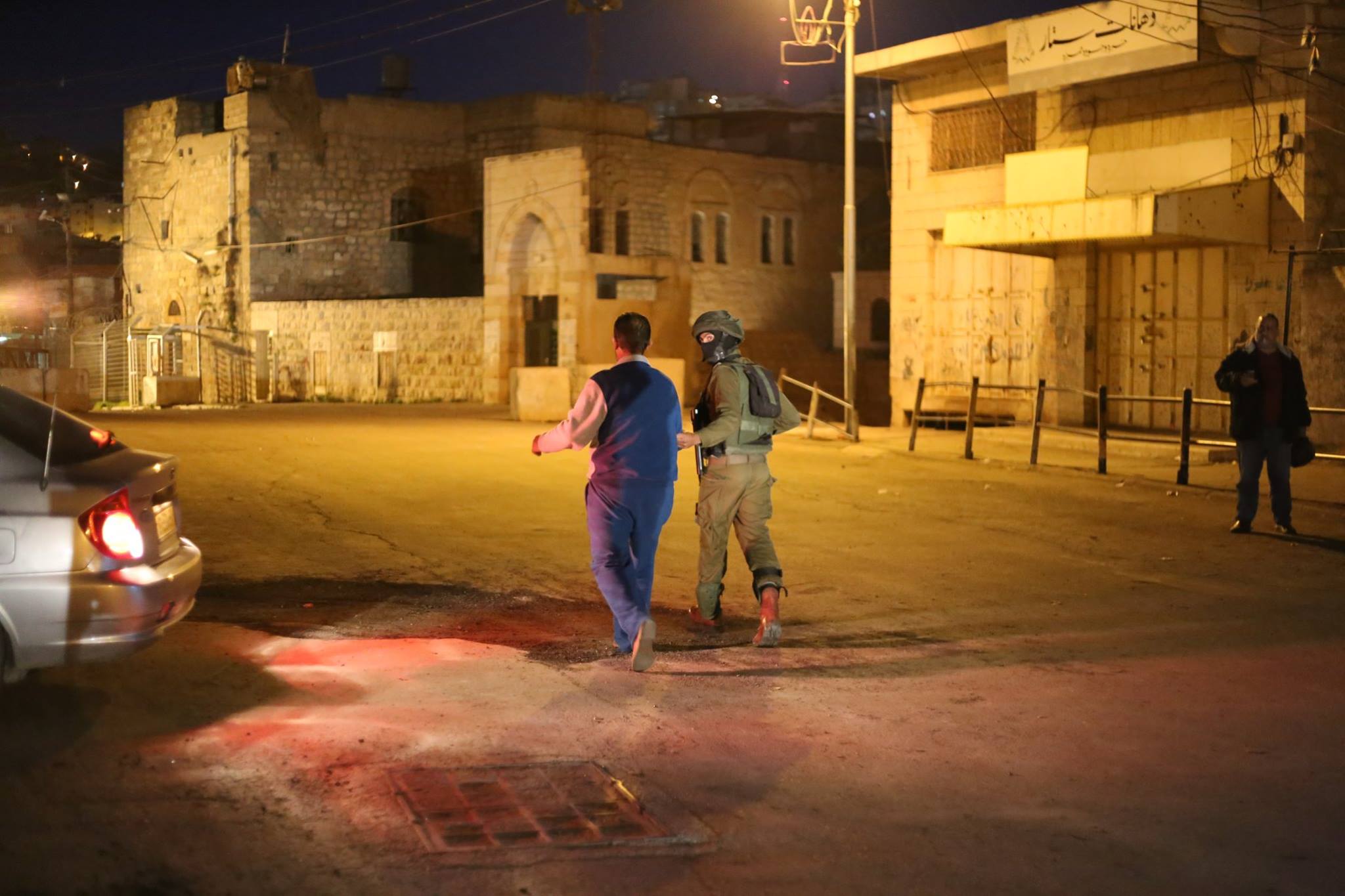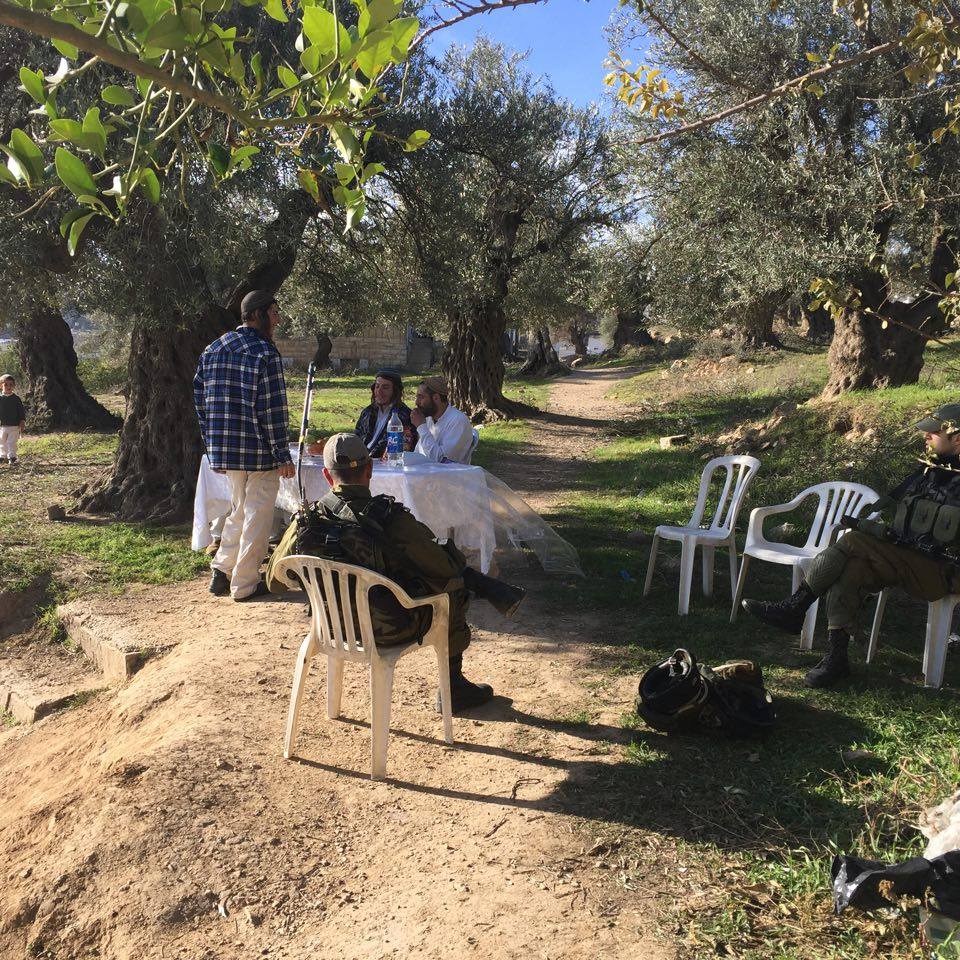Tag: Night Raid
-
House raids and arrests: Queitun area violently invaded by Israeli Forces
17th January 2016 | International Solidarity Movement, Al-Khalil Team | Hebron, occupied Palestine Yesterday, 16th of January 2016, the area of Queitun in Al-Khalil (Hebron) in the occupied West Bank was invaded by more than 50 Israeli Forces and more than six military jeeps and two police cars. The Israeli Forces raided multiple houses in…
-
Tanweer cultural centre in Nablus raided at night, equipment stolen and damaged
15th of December, 2015 | International Solidarity Movement, Nablus team | Nablus, occupied Palestine On the night of the 10th of December, the Israeli forces raided the Palestinian cultural Centre Tanweer, near the old city of Nablus, and stole hardwares, wifi keys and a laptop after searching the whole centre. The organisation lost all of…
-
Arbitrary arrest of local activists as settlers lay siege to soumud house in Hebron
28th November 2015 | International Solidarity Movement, al-Khalil team | Hebron, occupied Palestine Yesterday night, Israeli forces arrested two activists from the local activist group Youth Against Settlement in occupied al-Khalil (Hebron). Illegal settlers, under the protection of the Israeli forces, then layed siege to the YAS center, the Soumud house, trapping everyone inside. Israeli…



